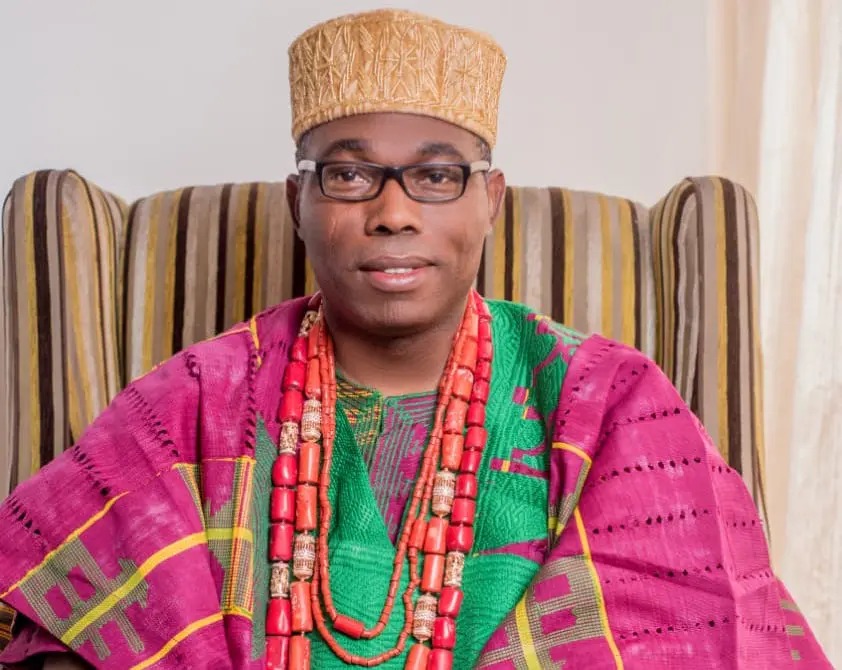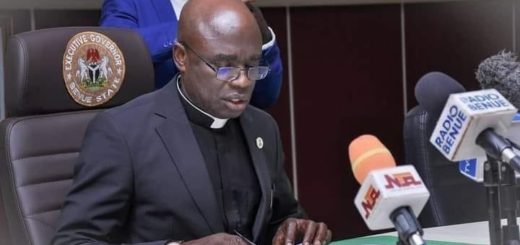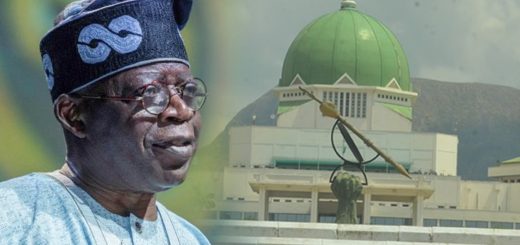Adebayo: Nigerians Have Alternatives to Tinubu’s Government
 Prince Adewole Adebayo, the 2023 presidential candidate for the Social Democratic Party (SDP), has asserted that Nigerians have multiple alternatives to President Bola Tinubu, who he believes has not adequately governed the country. In an interview with Daily Post, Adebayo reflected on the challenges faced in 2024 and shared his projections for 2025, as well as his thoughts on Nigeria’s judiciary and other national issues.
Prince Adewole Adebayo, the 2023 presidential candidate for the Social Democratic Party (SDP), has asserted that Nigerians have multiple alternatives to President Bola Tinubu, who he believes has not adequately governed the country. In an interview with Daily Post, Adebayo reflected on the challenges faced in 2024 and shared his projections for 2025, as well as his thoughts on Nigeria’s judiciary and other national issues.
On the Year 2024 and the Future:
Adebayo described 2024 as a “good year” for him personally, emphasizing the value of being alive and in good health. However, he acknowledged the mixed experiences for the nation, pointing out that while there were positive moments, the year was also marked by challenges, particularly in the economy and security.
“2024 was tough for Nigerians,” Adebayo stated. “We saw inflation rise, exchange rates fluctuate, and unemployment remain high, all of which were results of policies inherited from the previous administration. On the security front, we saw tragedies like the killing of the Emir of Gobir and various incidents related to food distribution.”
Looking ahead to 2025, he remains cautiously hopeful, urging Nigerians to maintain hope despite the challenges. “Hope is what keeps us going. It’s not just about a single government or individual,” he said, asserting that hope should not be limited to President Tinubu’s administration.
On President Tinubu’s Performance:
Adebayo was critical of President Tinubu’s claim that the government is performing well, stating that the president is not truly “governing” but merely “in power.” He compared Tinubu’s leadership to that of former President Muhammadu Buhari, asserting that Tinubu has failed to capitalize on available talents within his administration.
“I don’t agree with the president’s statement,” Adebayo remarked. “He is using power for other things but has not implemented the best ideas or tapped into the best talents available.”
He noted a few exceptions, such as the work done by certain ministers in the FCT and the Ministry of Interior, but overall, Adebayo criticized the administration’s lack of vision and effective governance.
On Nigerians’ Hope Amidst Policy Challenges:
Adebayo acknowledged that while Nigerians continue to express hope, he warned that hope alone is not enough if the government’s policies are not yielding tangible improvements. He likened the country’s hope to a journey where people may be on a broken-down vehicle, but still hold hope for another, better vehicle.
He added, “Nigerians have alternatives. Tinubu is not the only option. His policies are not the only ones that can be implemented, and hope should extend beyond his four-year tenure.”
On Economic Challenges:
When asked about the government’s controversial economic decisions, particularly the removal of petrol subsidies and the floating of the Naira, Adebayo described these moves as “exaggerated” in terms of their impact. He explained that Nigeria’s economic troubles predate Tinubu’s administration and stem from a long history of structural issues, such as the country’s reliance on raw material exports and the mismanagement of funds by previous governments.
While acknowledging that Tinubu inherited a difficult economic situation, Adebayo criticized the administration for worsening it. He highlighted Tinubu’s lack of understanding of economics and the absence of qualified economists in his team.
On Judicial Reform:
Adebayo also addressed concerns about corruption within the judiciary, emphasizing that increasing salaries alone would not solve the problem. Instead, he called for a broader approach to reform, advocating for a constitutional court to handle election petitions separately from regular judicial matters. He argued that this would allow regular judges to focus on everyday cases, while election matters, which he believes are straightforward, could be handled by retired judges or senior lawyers.
“The judiciary needs to be free from political interference,” he explained, adding that judges should not be burdened with election disputes. He also pointed out that the Nigerian legal system, inherited from the British, requires modernization to better reflect the country’s culture and needs.
On the Nigeria Judicial Council (NJC) and Election Petitions:
Regarding the NJC’s role in election petition controversies, Adebayo emphasized that the NJC is not tasked with reviewing court decisions but rather addressing corruption and misconduct. He suggested that reforms in the electoral process, such as the creation of a constitutional court, would help reduce the judiciary’s involvement in political matters and enable it to function more effectively in other areas.
Ultimately, Adebayo stressed the need for a judiciary that is fair, transparent, and focused on justice, not political interests.













